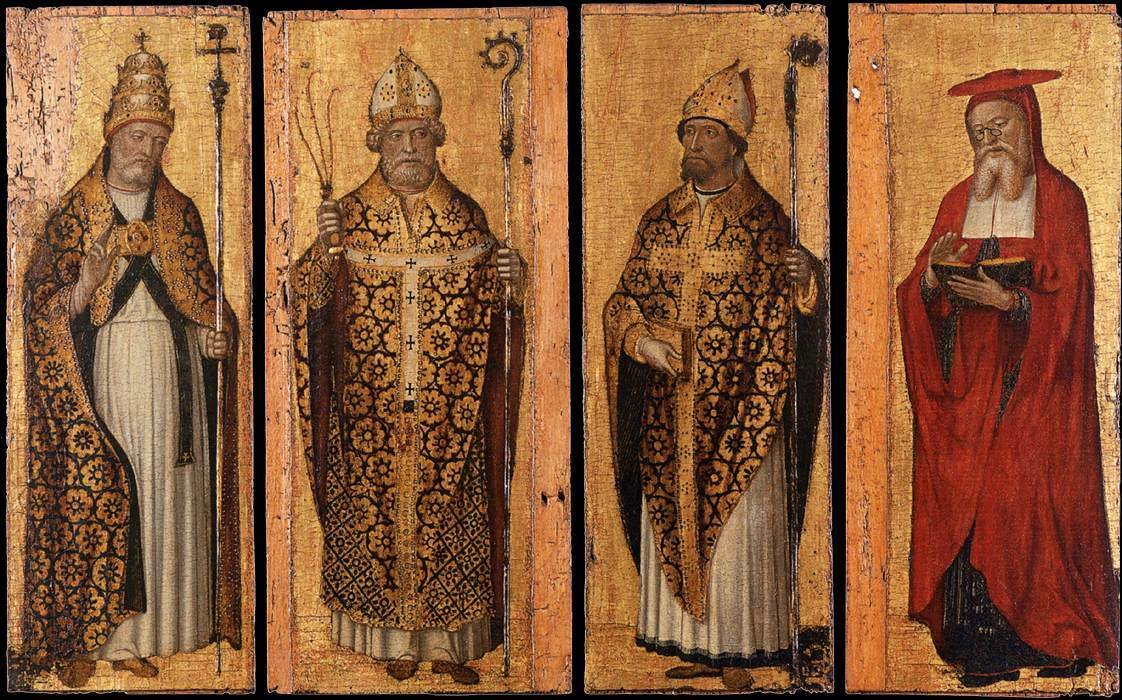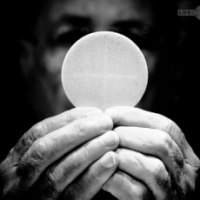Since I’ve been on this road, I’ve been reluctant to use the term “conversion” in referring to my becoming Catholic, since in common parlance, “to convert” connotes a changing of form or character:
con·vert (kən-vûrt´) v. con·vert·ed, con·vert·ing, con·verts v.tr.
1. To change (something) into another form, substance, state, or product; transform: convert water into ice.
2. To change (something) from one use, function, or purpose to another; adapt to a new or different purpose.
3. To persuade or induce to adopt a particular religion, faith, or belief.
. . .
[convert. (n.d.) The American Heritage Dictionary of the English Language, Fourth Edition. (2003). Retrieved October 9 2011 from http://www.thefreedictionary.com/convert]
And I’ve insisted that I’m not changing form or character, or even changing faiths; I am continuing as what I’ve been all along, a Christian. In many ways, though not formally initiated, I’ve been outwardly and inwardly a Catholic Christian for a while now. I’ve preferred to say that “I’m joining the Catholic Church” rather than “I’m converting to Catholicism.” “Conversion” is a scary word; somehow it feels that if I “convert,” I will no longer be what I was before.
Though the majority around me doesn’t think in such terms, I know, I have always seen through the English to the Latin root: converto — I turn around or turn towards a new direction. I want people to see that my conversion is not a change of character, but merely a reorientation.
Last night, I read at length in the Catechism about the sacraments of penance and reconciliation. I was surprised to read of a “second conversion” — the ongoing process of a baptized Christian in growing towards holiness and eternal life — something that I’ve never heard referred to in any Protestant circle. Sure, I’ve heard of “discipleship” and “maturing spiritually,” but generally the evangelical attitude seems to be, “Poof! You’re a Christian! Now live like a Christian!” My ongoing struggle with sin, even though I was supposed to be a Christian, has been a constant source of trouble and confusion in my life. The Cathechism:
Christ’s call to conversion continues to resound in the lives of Christians. This second conversion is an uninterrupted task for the whole Church who, “clasping sinners to her bosom, [is] at once holy and always in need of purification, [and] always follows constantly the path of penance and renewal.” This endeavor of conversion is not just a human work. It is the movement of a “contrite heart,” drawn and moved by grace to respond to the merciful love of God who loved us first. [Cathechism of the Catholic Church, 1428]
Another name of the sacrament of penance and reconciliation is the sacrament of conversion. It is the process not only by which sinners are reconciled to God and the Church, but through which we are inwardly healed and changed; through which we turn away from sin and toward God:
Interior repentance is a radical reorientation of our whole life, a return, a conversion to God with all our heart, an end of sin, a turning away from evil, with repugnance toward the evil actions we have committed. At the same time it entails the desire and resolution to change one’s life, with hope in God’s mercy and trust in the help of his grace. [Catechism, 1431]
I want to be converted, in my whole being. Even more than converting — reorienting — toward the Catholic Church, I want to turn toward God.
The Catholic Church, through its sacrament of reconciliation, understands the need for this continuing conversion in Christians, and how it is effected. I know I have heard some Protestants, the wise ones, acknowledge that growing in Christ is a process; they surely recognize, by experience, what isn’t formally taught in evangelical churches, but should be. So much of my youth was spent in agony, needing to confess and be reconciled, but instead making the same mistakes again and again, never growing, never converting, until I became calloused and complacent.
Today at Mass, as if to confirm this was a lesson I needed to pay attention to and take to heart, Deacon Ted spoke about this ongoing conversion in his homily.









